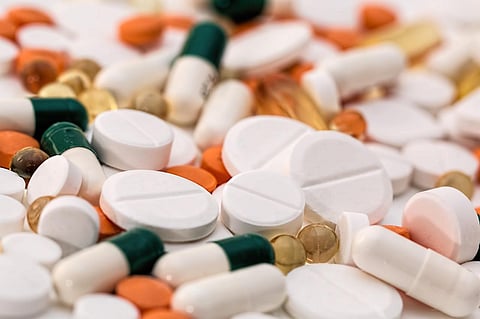

KOCHI: Kerala still has a long way to go to eliminate over-the-counter (OTC) sales of antibiotics. When antibiotics are overused or misused, resistant bacteria grow, thrive and develop the ability to resist the medication, making treatment harder, resulting in the spread of diseases and even death.
A recent inspection brought numerous violations to the notice of the Department of Drug Control. The sale of antibiotics over the counter — without the prescription of a doctor — was banned in the state a year ago. Pharmacies were warned that such sales would result in their licences being revoked. “In the last week of October, we inspected 50 randomly selected pharmacies and almost all of them were found to be violating regulations. We have issued show-cause notices,” said an official. Most violations were noticed in Ernakulam and Alappuzha districts.
Kerala is one of four states in the country with an action plan to reduce antimicrobial resistance (AMR): the Kerala Antimicrobial Resistance Strategic Action Plan (KARSAP) was introduced in 2018. But officials say the state still has a long way to go to achieve the goal. The availability of OTC antibiotics and lack of awareness have contributed to the issue.
“Awareness about consuming antibiotics only for specific indications and on a prescription by a qualified medical officer is important. The public should be educated about the harms of unnecessary consumption of antibiotics,” said Dr Sivaprasad P S, state nodal officer, AMR programme hub. Only behavioural change can help tackle the situation. “Self-treatment leads to people consuming more antibiotics,” added Dr Aravind R, convenor of the working committee of KARSAP.
Overuse can even have an economic impact during emergencies. “Increased microbial resistance will lead to increased infection rates. And, we may end up requiring high-end antibiotics to treat the disease. This will have an impact on hospital expenses and the income of patients,” said Dr Sivaprasad.